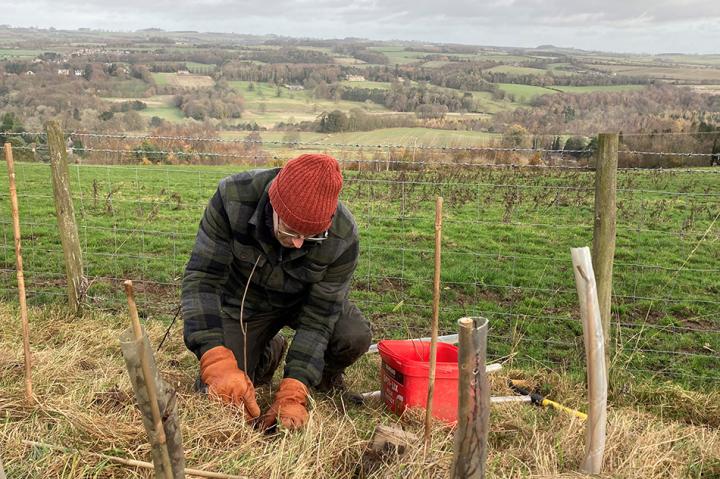Muckle supports with first Biodiversity Net Gain scheme in the North East and Cumbria

This weekend we were delighted to support our client with the development of the first Biodiversity Net Gain (BNG) scheme in the region.
The ground-breaking initiative follows the introduction of the new BNG planning laws, which require all qualifying planning permissions to demonstrate that the development of a site will achieve a net gain in biodiversity of more than 10%.
If developers aren’t able to deliver this increase on-site, they can buy units from landowners who have designated some of their land in the locality for biodiversity.
The Porter family, working closely with Northumberland County Council, with support from Richard Nixon, partner in our real estate team, has done just this. In doing so, they’ve registered the first scheme of its kind in the North East and Cumbria.
First of its kind
The site, just south of Corbridge, includes 5.2 hectares of meadow and 289 metres of native hedgerow and will create 35 BNG units in total (33 lowland meadow units and 2 hedgerow units). Richard went along on Saturday to help with the first planting on the land.
Christopher Porter said: “We’re proud to be the first provider to have a site placed on the national register and we thank Northumberland County Council and Muckle in helping us achieve this milestone.
“We chose to work with Muckle due to their experience in working with Northumberland County Council and their pragmatic approach to the application of this new legislation. BNG is new for everyone, but Muckle was able to work quickly and was extremely responsive throughout. Richard and the team recognise the long-term possibilities of BNG and were hands-on in their approach, with Richard coming along to help plant the first hedge.”
Richard said: “This is a fantastic achievement and one that we’re excited to be a part of. As the need to develop land in the UK grows, so does the need to balance the impact on the environment. The Government’s biodiversity net gain planning requirements became mandatory in Spring 2024 and, with it, brings new opportunities for landowners to generate a diversified income stream from their land. We’re hoping this scheme will be the first of many across the North East and Cumbria.”
You can find out how you can purchase these units please contact Christopher Porter at [email protected]
For more information, contact Richard Nixon on 0191 211 7924 or email [email protected]
Biodiversity Net Gain (BNG) is an approach to development and land management that ensures the natural environment is left in a better state than before. It requires developers to assess the impact of their projects on biodiversity and take steps to enhance or restore habitats. BNG is measured as a percentage improvement over the original biodiversity value, with policies typically requiring at least a 10% gain.
It is mandatory under the Environment Act 2001, which amended the Town and Country Planning Act 1990.
There are three options. Developers can either offset the loss of biodiversity by having BNG on site; this is secured by way of a planning agreement for the development site in the same way as any other planning obligation. Alternatively, they can buy BNG units from a provider who has created them on a different site within the locality on a one-for-one basis or a neighbouring locality at a 33% uplift or nationally at a 100% uplift. If that is not possible, then they can purchase BNG credits from a government-backed scheme again with 100% national uplift.
Local planning authorities regulate sites for BNG in the same way that they regulate on-site BNG; it is monitored with reporting requirements and must be subject to a habitat, maintenance and management plan (HMMP). HMMPs contain details as to the potential habitats created, their starting and target conditions, and the milestones that would be met. All legal agreements for BNG require the land to be kept for that purpose for at least 30 years. There is a small overlap in nutrient neutrality, and it is possible for both to be done on one site depending on the ecology.
Setting up this kind of scheme can be a more attractive option for a landowner looking to develop an income stream without having to develop their land or looking for a way to finance green initiatives. The sale of BNG units can provide a cash injection to farmers and other landowners, fund land improvements, pay for longer-term management, fund diversification and also leave a profit element.
